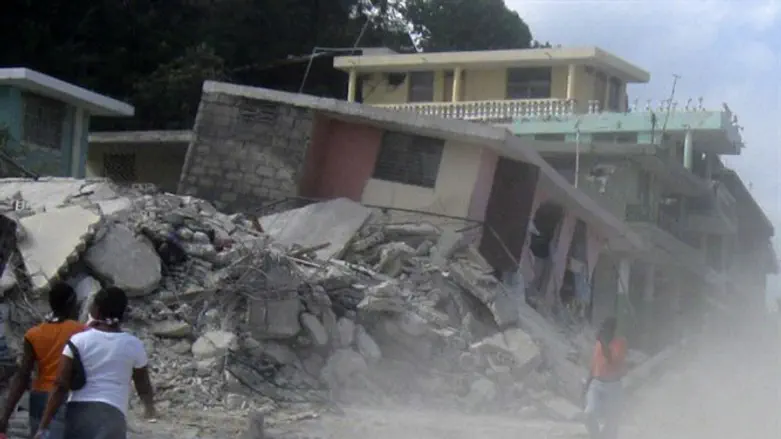
The Knesset Subcommittee for Readiness of the Home Front, affiliated with the Foreign Affairs and Defense committee, led by MK Amir Peretz (Zionist Union) held a hearing Wednesday to discuss the State of Israel's level of preparedness for earthquakes.
Peretz opened the discussion by expressing his empathy for victims of the latest earthquake in Italy. He added that the event is a reminder to the state to be prepared for the scenario of a natural disaster, and it doesn't matter in those situations whether it is a Western country or a Third World country.
"We cannot trust in luck or in Divine mercy and must perform what is required. Israel is at high risk for an earthquake whose results could be deadly. In Israel, super tankers arrive after the fires, and solutions are provided after the fact, but we in our committee should ensure that all the bodies involved work assiduously at all times," he said.
Bezalel Treiber, head of the National Emergency Authority (NEA) and his team presented to the Committee the scenarios of earthquakes which Israel is preparing for, as well as how these scenarios were formed and what action can be taken based on these scenarios.
"The scenarios speak of a possible 7,000 killed, 8,600 seriously injured, 170,000 homeless and 9,500 people trapped under rubble, of which some 98% would be evacuated within a week by family and by neighbors."
The members of the authority presented to the committee the methods in which they assessed the potential of damage to buildings and to the public, taking into account the location, potential dangers and strength of structures, with the highest potential for damage requiring more immediate maintenance work. These methods were also developed for local authorities to enable them to estimate damage potential in their areas and prepare accordingly.
Peretz asked Treiber how it is possible to ascertain that local authorities are indeed implementing these directives and whether financial incentives or sanctions would help in these cases. Treiber responded that there is already a proposed "home front" law which allows his authority to allocate authority and place sanctions, but the law has aroused opposition and severe criticism.
Treiber stated that Finance Ministry estimates say that an earthquake could cost the country 90 billion NIS in restoration and loss of GNP; however, according to estimates by the NEA, which include medical expenses and infrastructure and environmental damage, the cost could reach 150-200 billion NIS.
The NEA said that the country is not prepared for the possible need to identify large numbers of casualties simultaneously and that a new place for concentrating casualties is required.
The director of Evacuation, Assistance and Identification of dead people in the Interior Ministry, Eli Mualem, said that the infrastructure for identifying 150 dead people a day in each casualty center existed, and 14 such centers could be constructed, but the problem is the lack of professional staff, which is the responsibility of the Interior Ministry.